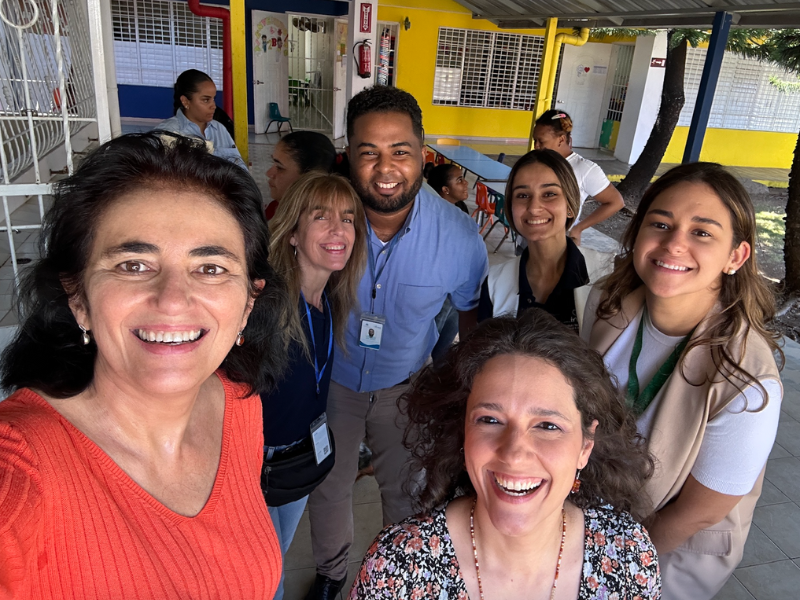Researching strategies to encourage childhood development in the Dominican Republic
Does misalignment with cultural norms lead to poor health outcomes for children? Dr. Arachu Castro, professor in the Department of International Health and Sustainable Development at the Tulane School of Public Health and Tropical Medicine, has been working with a colleague in the Dominican Republic to find out if this is true.
Castro, who is also the Samuel Z. Stone Endowed Chair of Public Health in Latin America, has been collaborating with Dr. Laura Sánchez-Vincitore, professor at the Universidad Iberoamericana in the Dominican Republic, on a project funded by the National Science Foundation to consider the role of cultural consonance and toxic stress on early childhood development.
Cultural consonance refers to how well people’s everyday lives align with their groups’ cultural norms. Medical anthropologists like Castro are interested in how this alignment protects individuals from poor health outcomes. One interesting but less explored idea is whether this protection might also benefit their children. The project was designed to gauge whether children of parents with high cultural consonance are similarly protected from adversity, especially in extreme poverty, where even small improvements can significantly enhance a child’s well-being.
“This hypothesis is formulated based upon our previous findings demonstrating that Dominican children who are not stimulated at home or who have been negatively disciplined are significantly more likely to suffer developmental delay and belong to the poorest wealth quintile,” Castro said.
Based on the first-year findings, in which they studied 100 mother-child pairs, they found that physical violence against children was very prevalent, particularly among mothers who had experienced physical violence from their parents and partners or who were adolescents when they first gave birth. Castro worked with Sánchez-Vincitore, who also serves as adjunct faculty at Tulane SPHTM, to deliver four, 2-hour workshops to parents of children under 5 who attend public daycare centers in Santo Domingo, the capital of the Dominican Republic. The workshops focused on strengthening parenting practices and were well attended, with over 200 parents taking part across the neighborhoods of Los Mina, Los Ríos, and Villas Agrícolas.
“The turnout was great,” Castro said. “We filled all the spaces, and the feedback from participants was excellent.”
Now in its second year, the hypothesis of the overarching study is that low cultural consonance -- experiencing disregard by others that results from low sense of coherence and unsatisfying social interactions -- is associated with children’s developmental delay. Castro and Sánchez-Vincitore will study 1,000 mother-child pairs. The study would not be possible without the partnership of the National Institute for Early Childhood Comprehensive Care (INAIPI), which supports 170,000 children under 5 and their families with early education centers and home visits in the Dominican Republic.
Based on the study findings, and with funding from a 2024 Carol Lavin Bernick Faculty Grant, they will also create and test a 12-session nurturing care program for adolescent mothers and measure its impact on the use of violence against their children. Currently, INAIPI does not offer nurturing care programs specific to adolescent mothers and has expressed interest in investing in these programs if the study is deemed feasible and is well received by participants.

